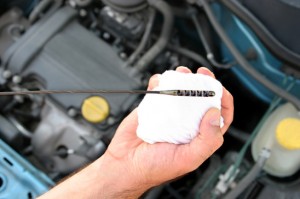Whether you are a first-time car owner or you are on your fourth or fifth car, basic maintenance comes with owning a car. And one of the most routine items on your maintenance schedule is changing your motor oil on a regular basis.
Motor oil is essential to the operation of your vehicle. Without it, your car is not going to get very far before the motor locks up – and you are left without transportation. Understanding what motor oil does to protect your motor will help you ensure that you are never left on the side of the highway due to motor oil problems.
Motor oil is a lubricant for your engine. However, it does much more than simply keeping the parts lubricated. Motor oil creates a film on bearing surfaces that helps to separate the parts and keep them from rubbing on each other. This minimizes friction and reduces wear and tear on your engine. Motor oil also cushions the moving parts of your engine. It keeps certain parts of your motor cool and keeps rust and corrosion at a minimum. In short, motor oil serves many purposes within your engine – each one vital to the longevity of your motor.
The viscosity of your motor oil is the number you will find on the outside of a bottle of motor oil. Numbers, such as 10W, 15W, SAE 30, and SAE 40, are all numbers indicating viscosity. How easily an oil pours at a certain temperature is viscosity. Thinner oils pour easier at lower temperatures and thicker oils are better for high temperatures. Motor oil is available in multi-viscosity, such as 10W-30, where each number indicates viscosity at lower and higher temperatures. You should use the motor oil recommended by the manufacturer or your auto technician.
You should change your car’s motor oil about every six months or 3,000 miles. Over time, the oil simply wears out – it loses viscosity and can contain “gunk” from the motor. To maintain your vehicle, you have to change the oil and the oil filter on a regular basis. Otherwise, your oil could develop “sludge” and this can lead to the failure of your engine.

Leave a Reply
You must be logged in to post a comment.